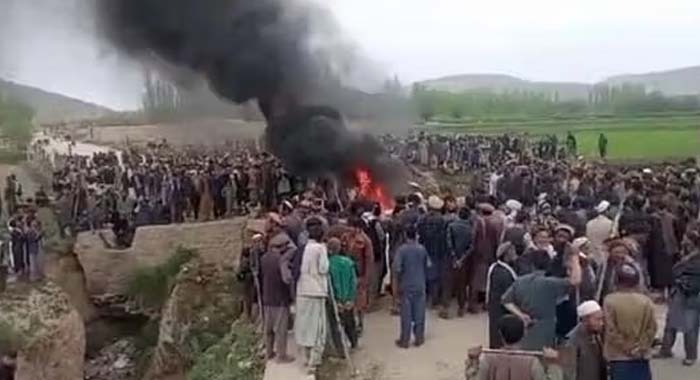Just a day after enforcing a burqa mandate for women entering regional hospital in Herat, and amid reports of female doctors being beaten by Taliban enforcers, the Afghan Taliban have appealed to the United Nations not to comment on public protests in Badakhshan over poppy-eradication drives.
According to a new report by the UN Office on Drugs and Crime (UNODC), Taliban operations to destroy poppy fields in the northern province from May to July 2025 triggered demonstrations in the Argo, Jurm, and Khash districts. The report said that during the ensuing crackdown, at least twelve civilians were killed and several others wounded.
Local sources said Taliban forces opened fire on protesters and used force to disperse crowds after demonstrators set fire to tractors belonging to the Taliban’s Counter-Narcotics Directorate and blocked key roads in several districts. The Taliban reportedly suspended their eradication campaign temporarily and cut internet services in the affected areas.
In a written response attached to the UN report, the Taliban’s Counter-Narcotics Directorate urged UNODC to refrain from mentioning what it called “public resistance to poppy eradication in Badakhshan.”
The report further noted that while Afghanistan’s poppy cultivation has dropped by 20 percent compared to last year, the production and trafficking of synthetic drugs, especially methamphetamine, continue to increase.
Meanwhile, Badakhshan has also witnessed months-long violent clashes over control of a gold mine, which have claimed more than a dozen lives, including Taliban fighters. The regime has struggled to enforce transfer and appointment orders issued by its so-called supreme leader, Hibatullah Akhundzada, reflecting growing administrative discord within its own ranks.





